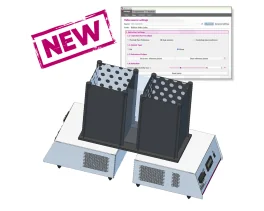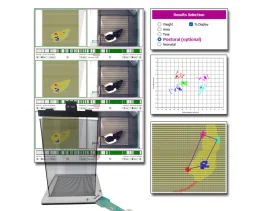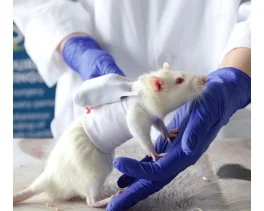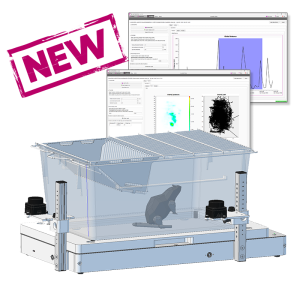Authors
C. Delattre, C. Bournonville, F. Auger, R. Lopes, C. Delmaire, H. Henon, A. M. Mendyk, S. Bombois, J. C. Devedjian, D. Leys, C. Cordonnier, R. Bordet, M. Bastid
Lab
Université Lille, INSERM, CHU Lille Université du Littoral Côte dOpale, France
Journal
Translational Stroke Research
Abstract
Stroke patients have an elevated risk of developing long-term cognitive disorders or dementia. The latter is often associated with atrophy of the medial temporal lobe. However, it is not clear whether hippocampal and entorhinal cortex atrophy is the sole predictor of long-term post-stroke dementia. We hypothesized that hippocampal deformation (rather than atrophy) is a predictive marker of long-term post-stroke dementia on a rat model and tested this hypothesis in a prospective cohort of stroke patients. Male Wistar rats were subjected to transient middle cerebral artery occlusion and assessed 6 months later. Ninety initially dementia-free patients having suffered a first-ever ischemic stroke were prospectively included in a clinical study. In the rat model, significant impairments in hippocampus-dependent memories were observed. MRI studies did not reveal significant atrophy of the hippocampus volume, but significant deformations were indeed observedparticularly on the ipsilateral side. There, the neuronal surface area was significantly lower in ischemic rats and was associated with a lower tissue density and a markedly thinner entorhinal cortex. At 6 months post-stroke, 49 of the 90 patients displayed cognitive impairment (males 55.10%). Shape analysis revealed marked deformations of their left hippocampus, a significantly lower entorhinal cortex surface area, and a wider rhinal sulcus but no hippocampal atrophy. Hence, hippocampal deformations and entorhinal cortex atrophy were associated with long-term impaired cognitive abilities in a stroke rat model and in stroke patients. When combined with existing biomarkers, these markers might constitute sensitive new tools for the early prediction of post-stroke dementia.
BIOSEB Instruments Used
Activmeter (BIO-ACTIV-R)
Source :

 Douleur - Allodynie/Hyperalgésie Thermique
Douleur - Allodynie/Hyperalgésie Thermique Douleur - Spontanée - Déficit de Posture
Douleur - Spontanée - Déficit de Posture Douleur - Allodynie/Hyperalgésie Mécanique
Douleur - Allodynie/Hyperalgésie Mécanique Apprentissage/Mémoire - Attention - Addiction
Apprentissage/Mémoire - Attention - Addiction Physiologie & Recherche Respiratoire
Physiologie & Recherche Respiratoire




































 Douleur
Douleur Système Nerveux Central (SNC)
Système Nerveux Central (SNC)  Neurodégénérescence
Neurodégénérescence Système sensoriel
Système sensoriel Système moteur
Système moteur Troubles de l'humeur
Troubles de l'humeur Autres pathologies
Autres pathologies Système musculaire
Système musculaire Articulations
Articulations Métabolisme
Métabolisme Thématiques transversales
Thématiques transversales Congrès & Meetings
Congrès & Meetings 